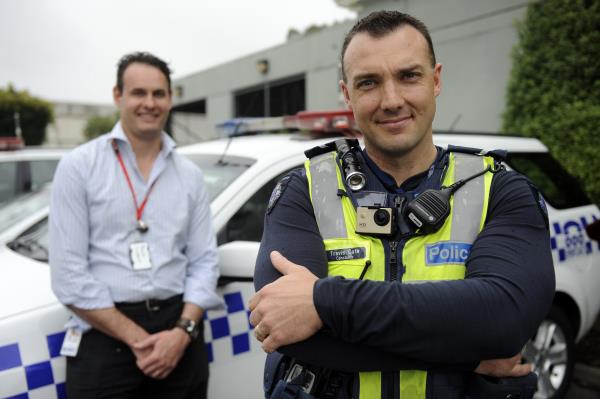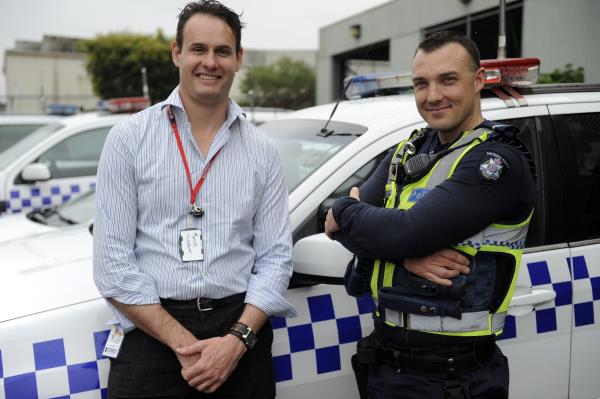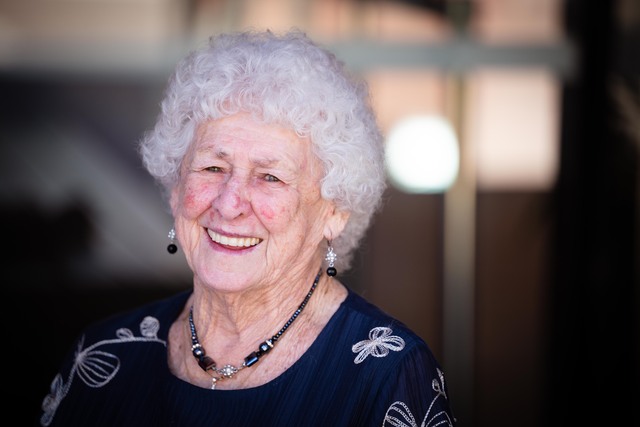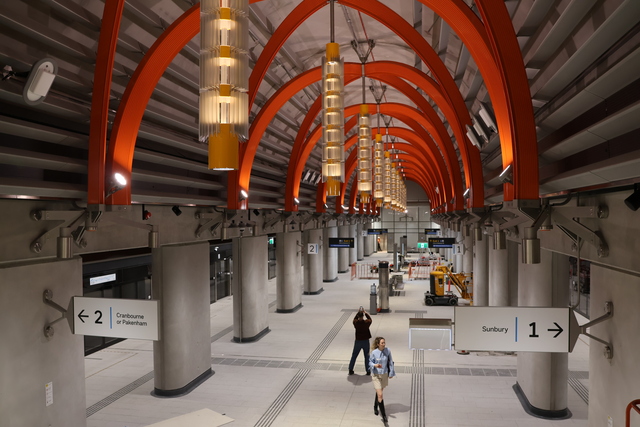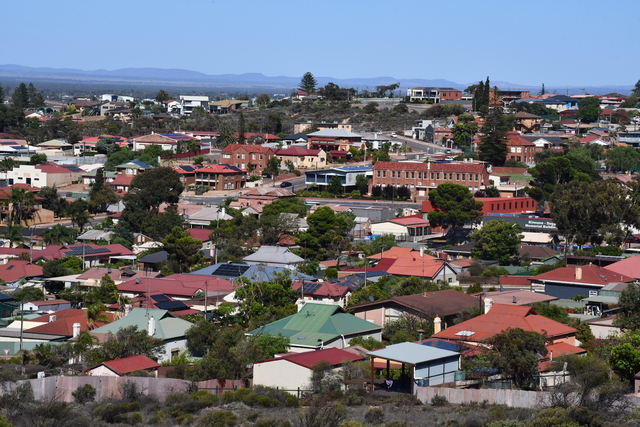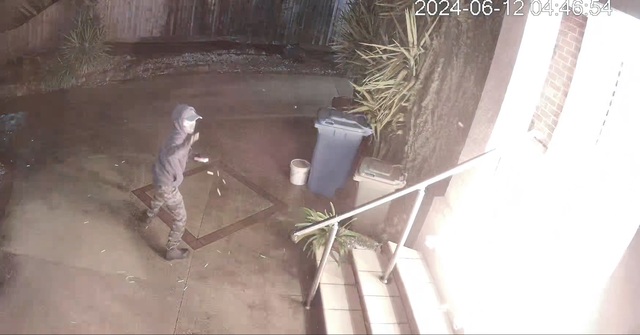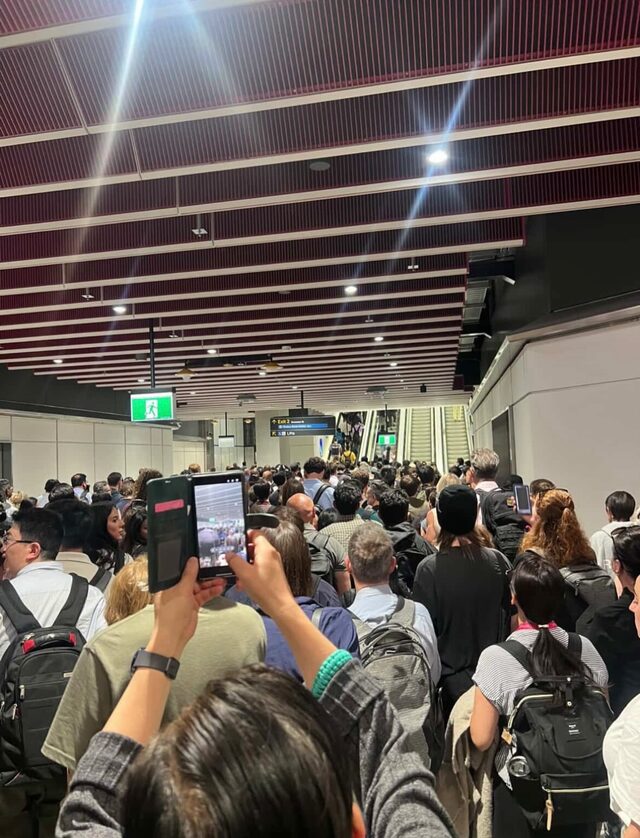Emergency services have been groaning under the ever-growing weight of mental-illness patients. A PACER team – a psychiatric nurse coupled with a police officer – roams the south-east to lighten the load. CAMERON LUCADOU-WELLS went along for the ride.
BEING on PACER, you don’t know what will happen next, said psychiatric nurse Cameron Duncan – with the hint of a grimace.
Duncan, accompanied by police First Constable Travis Cute, has just been called out to assess a Burmese refugee in his 20s who speaks little English.
They are told the man has walked into Springvale Police Station and asked for help.
He feels a burning sensation and pain in his hands and body, and has apparently told officers he may be assassinated and he would cut off his own testicles.
When PACER staff arrive, Cameron conducts an interview. It takes a ponderous 90-minutes using a Burmese interpreter on speaker-phone.
He decides the man has psychosis – paranoid, seeing things and hearing voices, talking about having an implant put in his tooth by a dentist and that people are out to kill him.
One thing is cleared up – the man doesn’t want to lop off his testicles.
His interpreter explained as the man wryly smiled that he’d said his illness was “reducing his manhood”. Thankfully, his “manhood” was only lost in translation.
But a startling fact is uncovered as Cameron asks about the man’s traumatic, dangerous life history.
The man feels guilty about accidentally stabbing a man to death during a fight in a “meat store” four years ago, before he came to Australia.
Cameron pauses, and confirms that what the interpreter said is correct.
What happens with that piece of information is uncertain. There are doubts on the reliability of the evidence given the man’s condition. Presumably his criminal history had been scanned by immigration authorities before he arrived in the country.
Cameron and First Const Cute are rostered on PACER (Police, Ambulance and Critical Early Response) – a hybrid of a psych clinician and a police officer.
Each evening in Greater Dandenong, Casey and Cardinia Shire, a PACER team is on-call.
It responds to police callouts for people threatening self-harm or otherwise struggling with their mental health.
They come in after a police unit has first ensured that the scene was safe.
PACER mops up with the psych assessment – deciding whether the patient can stay home or needs hospitalisation.
The premise is to free police for other duties.
In the past, police may make their own assessment that a patient is mentally ill, take the patient to hospital and potentially sit with them in an emergency ward for hours.
First Const Cute said suicide threats by family violence victims seem common. Often the threats are hollow, a means of retaliating against a domineering partner. But sometimes they are not.
“There’s not a police shift in Dandenong that you wouldn’t have a mental-health related call out.”
First Const Cute has painful memories pre-PACER of languishing for his entire eight-hour police shift in Casey Hospital emergency department’s waiting room, just sitting with a mentally ill woman until she was assessed by medical staff.
It was not the best use of police resources and often not the best use of hospital resources.
Since PACER was set up in Narre Warren in late 2011, it has seen more than 1500 cases. About 80 per cent of those were swiftly treated and left at home, rather than being escorted to an often-burdened hospital.
“There’s people who regularly call us when PACER is on. They know we can help them in a much more efficient manner without going to hospital,” First Const Cute said.
Sergeant Graeme Stanley, who oversees PACER, said the program had “astronomical” feedback. It has been replicated in other Melbourne regions, including in Moorabbin two weeks ago.
“Knowing that PACER is going to go to a job and release the other police units – it gives us more options to deal with things as they arise.
“Even when PACER takes a person to hospital, the (nurse) know the people at the hospital and are familiar with the mechanisms which makes for a swifter handover.”
Sergeant Samuel said PACER could usefully extend its daily eight-hour evening shift to 24/7 – if there were the resources.
Resources struggle to keep up
AS PACER drives to a job, the police radio crackles with other potential incidents – a grandmother in Noble Park anxious after being threatened by her ice-addicted son, a drunk woman in Narre Warren who’s threatened to self-harm after suffering domestic violence, a teenage boy in Dandenong poised to self-harm.
There’s no downtime. During the previous night’s eight-hour shift, PACER attended six call-outs.
PACER brings its patient in for voluntary admission at Dandenong Hospital but the mental health wing is full and the emergency department is filling quickly.
The hospital’s 50 mental health beds are full, as are another 56 in Casey and Monash.
“It’s cactus,” psychiatric nurse Cameron Duncan said.
An emergency department nurse scans the system. “Oh my gosh I can’t believe how busy we are. It’s full in Footscray. There are no beds anywhere.”
After completing assessment forms, Cameron and First Constable Travis Cute leave the man in the care of the nurse.
She must wait with him until beds are freed in the mental health wing.
PACER spends an hour at the hospital. Cameron’s laborious 90-minute interview with the patient at Springvale Police Station has saved the hospital valuable time.
Meanwhile at Dandenong emergency department, four police officers bring in the teenage boy that PACER had heard about on the radio 20 minutes earlier.
He is brought in with his girlfriend because of an apparent suicide pact. Both need to be assessed by hospital staff and probably need hospitalisation.
A staff member sticks her head in the room. She said she needs help for a code-grey situation in the emergency department in which a patient has become abusive or threatened violence. Staff speak calmly and directly as they shuffle resources to snuff out each spotfire.
From reports, Casey emergency department is hardest hit especially on weekends.
Staff say patients are “lining up out the door” of the waiting room of the hospital which is much too small for its rapidly-growing population area.
Anyone who needs help with mental health issues can call Lifeline on 131 114 or Beyondblue on 1300 224 636.

